
Kód: 07090290
Genealogy, From Nietzsche to Foucault - Tracing the History of the Present
Autor Mary Shoemaker
Since the nineteenth century we live subject to ever-quickening social change. To deal with this challenge, Friedrich Nietzsche recommended employing purposeful historical analyses that could explain the present and control the fu ... celý popis
- Jazyk:
 Angličtina
Angličtina - Väzba: Brožovaná
- Počet strán: 136
Nakladateľ: VDM Verlag Dr. Mueller E.K., 2008
- Viac informácií o knihe

Mohlo by sa vám tiež páčiť
-

Pedestrian Evacuation from Networks
87.75 € -
![Gems of Irish Scenery, [Photographs, ] with Descriptive Letterpress. Gems of Irish Scenery, [Photographs, ] with Descriptive Letterpress.](https://media.libris.to/jacket/08045832t.jpg)
Gems of Irish Scenery, [Photographs, ] with Descriptive Letterpress.
19.24 € -3 % -

Feasting on the Word
49.04 € -3 % -

Seminary At 100
25.08 € -

200 Crazy Clever Kakuro Puzzles - Volume 2
20.06 € -

Effects of CSR on Customer Retention in Different Sectors of Pakistan
52.52 € -

Japanese Civilization, its Significance and Realization
355.45 € -

States, Nonstate Actors, and Global Governance
217.81 € -

Mothering, Education, and Ethnicity
217.40 € -

BOOSEY HAWKES VIOLA ANTHOLOGY
25.90 € -1 % -

Contemporary Topics in Gestational Diabetes Mellitus
122.88 € -

Entwicklung von Lernprogrammen anhand der Grundlagen der Montessori-Pädagogik
50.27 € -4 % -

Die Wettbewerbsfähigkeit von KMU im Lichte des Bundesvergabegesetzes 2006
69.22 € -5 % -

Obstruccion de La Via Biliar
83.76 €
Darčekový poukaz: Radosť zaručená
- Darujte poukaz v ľubovoľnej hodnote, a my sa postaráme o zvyšok.
- Poukaz sa vzťahuje na všetky produkty v našej ponuke.
- Elektronický poukaz si vytlačíte z e-mailu a môžete ho ihneď darovať.
- Platnosť poukazu je 12 mesiacov od dátumu vystavenia.
Viac informácií o knihe Genealogy, From Nietzsche to Foucault - Tracing the History of the Present
Nákupom získate 188 bodov
 Anotácia knihy
Anotácia knihy
Since the nineteenth century we live subject to ever-quickening social change. To deal with this challenge, Friedrich Nietzsche recommended employing purposeful historical analyses that could explain the present and control the future. Building on Nietzsche's example, Michel Foucault in the twentieth century developed his own way of presenting the past in order to seve the living present. Foucault's analyses were intended to be genealogies, that is, family trees of our major social and political institutions, like churches, schools, hospitals, and prisons.§ The focus of this study is Foucault's most successful and illuminating genealogy, DISCIPLINE AND PUNISH:THE BIRTH OF THE PRISON. In it he demonstrates his method and shows how understanding the facts of the past in their interaction is the thread which can help us move ahead in the present. How did the edifice of laws, the courts, and the prison system come into being? How did it grow so powerful? We may not agree with Foucault in every detail, but we know that the prisons are too often the causes of crime, rather than its solution. He explains why. Since the nineteenth century we live subject to ever-quickening social change. To deal with this challenge, Friedrich Nietzsche recommended employing purposeful historical analyses that could explain the present and control the future. Building on Nietzsche''s example, Michel Foucault in the twentieth century developed his own way of presenting the past in order to seve the living present. Foucault''s analyses were intended to be genealogies, that is, family trees of our major social and political institutions, like churches, schools, hospitals, and prisons.§The focus of this study is Foucault''s most successful and illuminating genealogy, DISCIPLINE AND PUNISH:THE BIRTH OF THE PRISON. In it he demonstrates his method and shows how understanding the facts of the past in their interaction is the thread which can help us move ahead in the present. How did the edifice of laws, the courts, and the prison system come into being? How did it grow so powerful? We may not agree with Foucault in every detail, but we know that the prisons are too often the causes of crime, rather than its solution. He explains why.
 Parametre knihy
Parametre knihy
Zaradenie knihy Knihy po anglicky Humanities Philosophy
76.28 €
- Celý názov: Genealogy, From Nietzsche to Foucault - Tracing the History of the Present
- Autor: Mary Shoemaker
- Jazyk:
 Angličtina
Angličtina - Väzba: Brožovaná
- Počet strán: 136
- EAN: 9783836478021
- ISBN: 3836478021
- ID: 07090290
- Nakladateľ: VDM Verlag Dr. Mueller E.K.
- Hmotnosť: 212 g
- Rozmery: 151 × 228 × 12 mm
- Dátum vydania: 26. March 2008
Obľúbené z iného súdka
-

Thus Spoke Zarathustra - The Philosophy Classic
13.20 € -19 % -

From Bacteria to Bach and Back
18.63 € -

Men Among the Ruins
21.19 € -19 % -

Doing Philosophy
17.19 € -19 % -
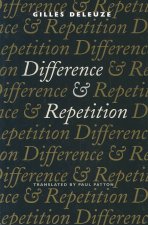
Difference and Repetition
23.54 € -17 % -

The Conspiracy Against the Human Race
16.07 € -15 % -

How to Think Like a Roman Emperor
16.68 € -13 % -

Teachings of Don Juan
9.62 € -23 % -
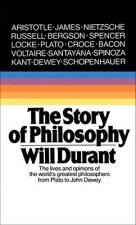
The Story of Philosophy
10.85 € -4 % -

I am That
41.26 € -
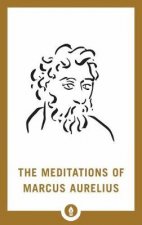
Meditations of Marcus Aurelius
13.10 € -10 % -

Monkey Business
15.25 € -23 % -

Aristotles Revenge
31.84 € -
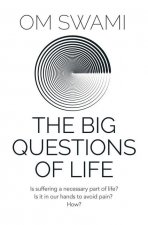
Big Questions of Life
13 € -2 % -

Musonius Rufus
17.30 € -

In Search of Being
23.24 € -20 % -

Nature
7.47 € -13 % -
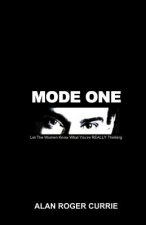
Mode One
26 € -

Philosophy 101
14.63 € -20 % -

Nomadology - The War Machine
12.69 € -18 % -

Intuition Pumps and Other Tools for Thinking
19.45 € -17 % -

From Intellect to Intuition
14.63 € -

Omnibus Homo Sacer
117.55 € -

Mystery of Evil
22.93 € -

Daily Reflections
6.44 € -13 % -

Return to the One
19.55 € -

Desire/Love
19.86 € -2 % -

Nuclear Physics
15.66 € -18 % -

Western Philosophy: An Anthology, 3rd Edition
43.62 € -5 % -
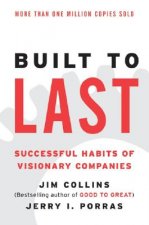
Built to Last
19.86 € -

I Am a Strange Loop
18.73 € -20 % -

Letters from a Stoic - The Ancient Classic
12.69 € -23 % -

The Essential Philosophical Works
5.52 € -26 % -

How the World Thinks
11.36 € -24 % -

Big Bang Theory and Philosophy - Rock, Paper, Scissors, Aristotle, Locke
20.68 € -

Wisdom of Yoga
15.04 € -22 % -

Breaking Bad and Philosophy
22.83 € -18 % -

Sacred Dance Meditations
23.13 € -15 % -

Hyperculture: Culture and Globalisation
17.09 € -

Escape from Evil
19.86 € -

Imitation of Christ
5.31 € -13 % -

Machiavelli: The Art of Teaching People What to Fear
17.91 € -8 % -

Religion of Tomorrow
29.59 € -18 % -

Calendar of Wisdom
22.62 € -23 % -

Meditations of Marcus Aurelius
14.53 € -

Mortal Questions
17.19 € -19 % -

Philosophy of Loneliness
21.19 € -3 % -

Oxford Companion to Philosophy
35.32 € -20 % -

Contingency, Irony, and Solidarity
25.28 € -18 %
Osobný odber Bratislava a 2642 dalších
Copyright ©2008-24 najlacnejsie-knihy.sk Všetky práva vyhradenéSúkromieCookies



 21 miliónov titulov
21 miliónov titulov Vrátenie do mesiaca
Vrátenie do mesiaca 02/210 210 99 (8-15.30h)
02/210 210 99 (8-15.30h)